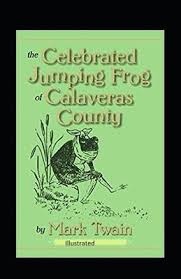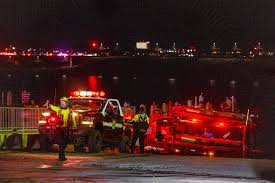THE CELEBRATED JUMPING FROG OF CALAVERAS COUNTY
Catagory:Tell story
Author:Mark Twain (1835–1910)
Posted Date:01/30/2025
Posted By:utopia online
In compliance with the request of a friend of mine, who wrote me from the East, I called on good-natured, garrulous old Simon Wheeler, and inquired after my friend’s friend, Leonidas W. Smiley, as requested to do, and I hereunto append the result. I have a lurking suspicion that Leonidas W. Smiley is a myth; and that my friend never knew such a personage; and that he only conjectured that if I asked old Wheeler about him, it would remind him of his infamous Jim Smiley, and he would go to work and bore me to death with some exasperating reminiscence of him as long and as tedious as it should be useless to me. If that was the design, it succeeded.
I found Simon Wheeler dozing comfortably by the bar-room stove of the dilapidated tavern in the decayed mining camp of Angel’s, and I noticed that he was fat and bald-headed, and had an expression of winning gentleness and simplicity upon his tranquil countenance. He roused up, and gave me good-day. I told him a friend had commissioned me to make some inquiries about a cherished companion of his boyhood named Leonidas W. Smiley—Rev. Leonidas W. Smiley, a young minister of the Gospel, who he had heard was at one time a resident of Angel’s Camp. I added that if Mr. Wheeler could tell me anything about this Rev. Leonidas W. Smiley, I would feel under many obligations to him.
Simon Wheeler backed me into a corner and blockaded me there with his chair, and then sat down and reeled off the monotonous narrative which follows this paragraph. He never smiled, he never frowned, he never changed his voice from the gentle-flowing key to which he tuned his initial sentence, he never betrayed the slightest suspicion of enthusiasm; but all through the interminable narrative there ran a vein of impressive earnestness and sincerity, which showed me plainly that, so far from his imagining that there was anything ridiculous or funny about his story, he regarded it as a really important matter, and admired its two heroes as men of transcendent genius in finesse. I let him go on in his own way, and never interrupted him once.
“Rev. Leonidas W. H’m, Reverend Le—well, there was a feller here once by the name of Jim Smiley, in the winter of ’49—or may be it was the spring of ’50—I don’t recollect exactly, somehow, though what makes me think it was one or the other is because I remember the big flume warn’t finished when he first came to the camp; but any way, he was the curiousest man about always betting on anything that turned up you ever see, if he could get anybody to bet on the other side; and if he couldn’t he’d change sides. Any way that suited the other man would suit him—any way just so’s he got a bet, he was satisfied. But still he was lucky, uncommon lucky; he most always come out winner. He was always ready and laying for a chance; there couldn’t be no solit’ry thing mentioned but that feller’d offer to bet on it, and take any side you please, as I was just telling you. If there was a horse-race, you’d find him flush or you’d find him busted at the end of it; if there was a dog-fight, he’d bet on it; if there was a cat-fight, he’d bet on it; if there was a chicken-fight, he’d bet on it; why, if there was two birds setting on a fence, he would bet you which one would fly first; or if there was a camp-meeting, he would be there reg’lar to bet on Parson Walker, which he judged to be the best exhorter about here, and he was, too, and a good man. If he even see a straddle-bug start to go anywheres, he would bet you how long it would take him to get to—to wherever he was going to, and if you took him up, he would foller that straddle-bug to Mexico but what he would find out where he was bound for and how long he was on the road. Lots of the boys here has seen that Smiley and can tell you about him. Why, it never made no difference to him—he’d bet on any thing—the dangest feller. Parson Walker’s wife laid very sick once, for a good while, and it seemed as if they warn’t going to save her; but one morning he come in, and Smiley up and asked him how she was, and he said she was considerable better—thank the Lord for his inf’nit’ mercy—and coming on so smart that with the blessing of Prov’dence she’d get well yet; and Smiley, before he thought, says, Well, I’ll risk two-and-a-half she don’t anyway.’”
Thish-yer Smiley had a mare—the boys called her the fifteen-minute nag, but that was only in fun, you know, because, of course, she was faster than that—and he used to win money on that horse, for all she was so slow and always had the asthma, or the distemper, or the consumption, or something of that kind. They used to give her two or three hundred yards start, and then pass her under way; but always at the fag-end of the race she’d get excited and desperate-like, and come cavorting and straddling up, and scattering her legs around limber, sometimes in the air, and sometimes out to one side amongst the fences, and kicking up m-o-r-e dust and raising m-o-r-e racket with her coughing and sneezing and blowing her nose—and always fetch up at the stand just about a neck ahead, as near as you could cipher it down.
And he had a little small bull-pup, that to look at him you’d think he warn’t worth a cent but to set around and look ornery and lay for a chance to steal something. But as soon as money was up on him he was a different dog; his under-jaw’d begin to stick out like the fo’-castle of a steamboat, and his teeth would uncover and shine like the furnaces. And a dog might tackle him and bully-rag him, and bite him, and throw him over his shoulder two or three times, and Andrew Jackson—which was the name of the pup—Andrew Jackson would never let on but what he was satisfied, and hadn’t expected nothing else—and the bets being doubled and doubled on the other side all the time, till the money was all up; and then all of a sudden he would grab that other dog jest by the j’int of his hind leg and freeze to it—not chaw, you understand, but only just grip and hang on till they throwed up the sponge, if it was a year. Smiley always come out winner on that pup, till he harnessed a dog once that didn’t have no hind legs, because they’d been sawed off in a circular saw, and when the thing had gone along far enough, and the money was all up, and he come to make a snatch for his pet holt, he see in a minute how he’d been imposed on, and how the other dog had him in the door, so to speak, and he ’peared surprised, and then he looked sorter discouraged-like, and didn’t try no more to win the fight, and so he got shucked out bad. He gave Smiley a look, as much as to say his heart was broke, and it was his fault, for putting up a dog that hadn’t no hind legs for him to take holt of, which was his main dependence in a fight, and then he limped off a piece and laid down and died. It was a good pup, was that Andrew Jackson, and would have made a name for hisself if he’d lived, for the stuff was in him and he had genius—I know it, because he hadn’t no opportunities to speak of, and it don’t stand to reason that a dog could make such a fight as he could under them circumstances if he hadn’t no talent. It always makes me feel sorry when I think of that last fight of his’n, and the way it turned out.
Well, thish-yer Smiley had rat-tarriers, and chicken cocks, and tom-cats and all of them kind of things, till you couldn’t rest, and you couldn’t fetch nothing for him to bet on but he’d match you. He ketched a frog one day, and took him home, and said he cal’lated to educate him; and so he never done nothing for three months but set in his back yard and learn that frog to jump. And you bet you he did learn him, too. He’d give him a little punch behind, and the next minute you’d see that frog whirling in the air like a doughnut—see him turn one summerset, or may be a couple, if he got a good start, and come down flat-footed and all right, like a cat. He got him up so in the matter of ketching flies, and kep’ him in practice so constant, that he’d nail a fly every time as fur as he could see him. Smiley said all a frog wanted was education, and he could do ’most anything—and I believe him. Why, I’ve seen him set Dan’l Webster down here on this floor—Dan’l Webster was the name of the frog—and sing out, “Flies, Dan’l, flies!” and quicker’n you could wink he’d spring straight up and snake a fly off’n the counter there, and flop down on the floor ag’in as solid as a gob of mud, and fall to scratching the side of his head with his hind foot as indifferent as if he hadn’t no idea he’d been doin’ any more’n any frog might do. You never see a frog so modest and straightfor’ard as he was, for all he was so gifted. And when it come to fair and square jumping on a dead level, he could get over more ground at one straddle than any animal of his breed you ever see. Jumping on a dead level was his strong suit, you understand; and when it come to that, Smiley would ante up money on him as long as he had a red. Smiley was monstrous proud of his frog, and well he might be, for fellers that had traveled and been everywheres, all said he laid over any frog that ever they see.
Well, Smiley kep’ the beast in a little lattice box, and he used to fetch him downtown sometimes and lay for a bet. One day a feller—a stranger in the camp, he was—come acrost him with his box, and says:
“What might be that you’ve got in the box?”
And Smiley says, sorter indifferent-like, “It might be a parrot, or it might be a canary, maybe, but it ain’t—it’s only just a frog.”
And the feller took it, and looked at it careful, and turned it round this way and that, and says, “H’m—so ’tis. Well, what’s he good for?”
“Well,” Smiley says, easy and careless, “he’s good enough for one thing, I should judge—he can outjump any frog in Calaveras county.”
The feller took the box again, and took another long, particular look, and give it back to Smiley, and says, very deliberate, “Well,” he says, “I don’t see no p’ints about that frog that’s any better’n any other frog.”
“Maybe you don’t,” Smiley says. “Maybe you understand frogs and maybe you don’t understand ’em; maybe you’ve had experience, and maybe you ain’t only a amature, as it were. Anyways, I’ve got my opinion and I’ll risk forty dollars that he can outjump any frog in Calaveras County.”
And the feller studied a minute, and then says, kinder sad like, “Well, I’m only a stranger here, and I ain’t got no frog; but if I had a frog, I’d bet you.”
And then Smiley says, “That’s all right—that’s all right—if you’ll hold my box a minute, I’ll go and get you a frog.” And so the feller took the box, and put up his forty dollars along with Smiley’s, and set down to wait.
So he set there a good while thinking and thinking to hisself, and then he got the frog out and prized his mouth open and took a teaspoon and filled him full of quail shot—filled! him pretty near up to his chin—and set him on the floor. Smiley he went to the swamp and slopped around in the mud for a long time, and finally he ketched a frog, and fetched him in, and give him to this feller, and says:
“Now, if you’re ready, set him alongside of Dan’l, with his forepaws just even with Dan’l’s, and I’ll give the word.” Then he says, “One—two—three—git!” and him and the feller touched up the frogs from behind, and the new frog hopped off lively, but Dan’l give a heave, and hysted up his shoulders—so—like a Frenchman, but it warn’t no use—he couldn’t budge; he was planted as solid as a church, and he couldn’t no more stir than if he was anchored out. Smiley was a good deal surprised, and he was disgusted too, but he didn’t have no idea what the matter was, of course.
The feller took the money and started away; and when he was going out at the door, he sorter jerked his thumb over his shoulder—so—at Dan’l, and says again, very deliberate, “Well,” he says, “I don’t see no p’ints about that frog that’s any better’n any other frog.”
Smiley he stood scratching his head and looking down at Dan’l a long time, and at last says, “I do wonder what in the nation that frog throwed off for—I wonder if there ain’t something the matter with him—he ’pears to look mighty baggy, somehow.” And he ketched Dan’l up by the nap of the neck, and hefted him, and says, “Why blame my cats if he don’t weigh five pounds!” and turned him upside down and he belched out a double handful of shot. And then he see how it was, and he was the maddest man—he set the frog down and took out after that feller, but he never ketched him. And——
(Here Simon Wheeler heard his name called from the front yard, and got up to see what was wanted.) And turning to me as he moved away, he said: “Just set where you are, stranger, and rest easy—I ain’t going to be gone a second.”
But, by your leave, I did not think that a continuation of the history of the enterprising vagabond Jim Smiley would be likely to afford me much information concerning the Rev. Leonidas W. Smiley, and so I started away.
At the door I met the sociable Wheeler returning, and he buttonholed me and recommenced:
“Well, thish-yer Smiley had a yaller, one-eyed cow that didn’t have no tail, only jest a short stump like a bannanner, and——”
However, lacking both time and inclination, I did not wait to hear about the afflicted cow, but took my leave.


.jpg)














 👁 :89
👁 :89
 👁 :135
👁 :135
 👁 :19
👁 :19
 👁 :
👁 :
 👁 :324
👁 :324
 👁 :176
👁 :176
 👁 :242
👁 :242
 👁 :
👁 :